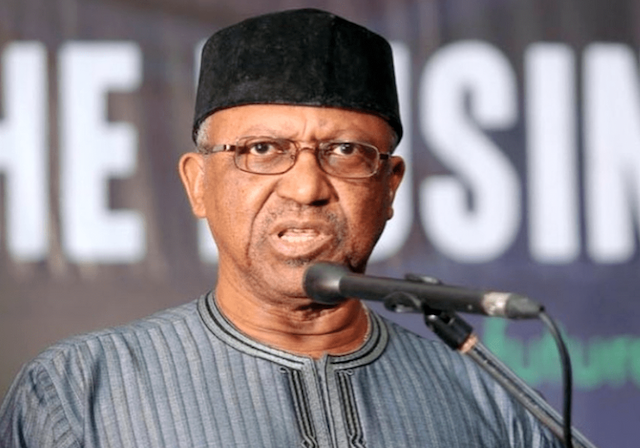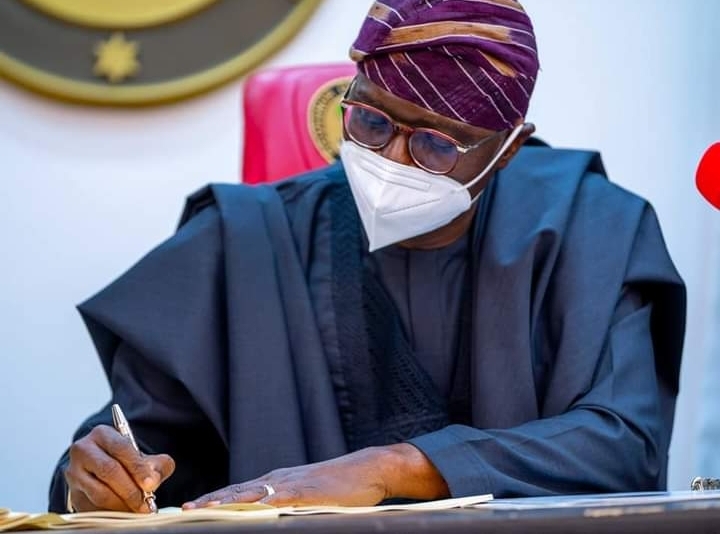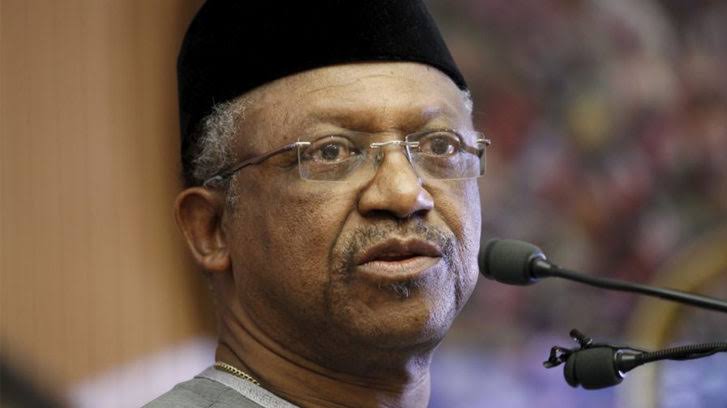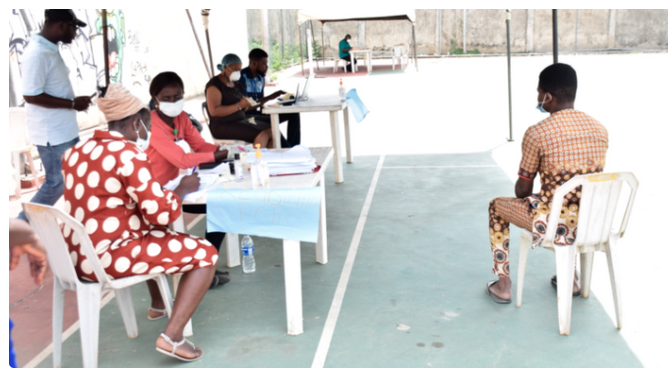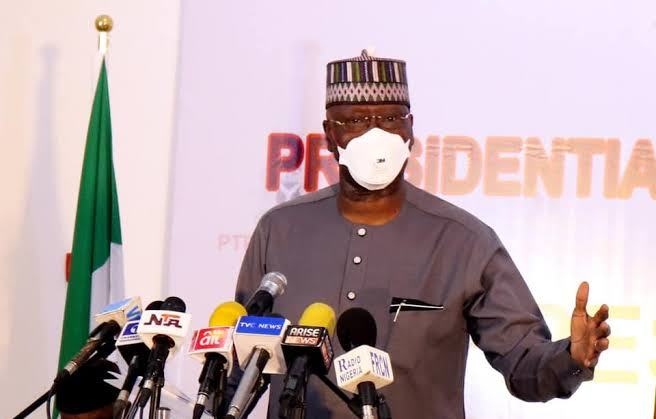I would like to thank the Nigerian Feminist Forum (NFF) for joining issues with me in its very thoughtful and illuminating rejoinder entitled: “Re: Legalization of abortion in Lagos State”. For the avoidance of doubt and for the benefit of those who have not been following the recent development in the abortion debate in our country, three weeks ago the Lagos State government, contrary to the law, dramatically released what it dubbed abortion guidelines in Lagos State, that is, the guidelines for termination of pregnancy or killing of unborn babies in Lagos State. The release of the aforesaid abortion guidelines caused no small stir in the Lagos polity. Apart from triggering off a series of discourses in the media, it was trailed by peaceful demonstrations in Lagos and Abuja. For example, displaying different colourful placards inscribed with attractive inscriptions: “Say No to abortion”, “Abortion Kills Women”, “Abortion Kills Babies”, the members of Civil Society organization staged a peaceful protest at Alausa, Lagos. The protesters, most of whom were young girls aged 10-18, danced joyously as they marched through the block of buildings of the Lagos State Ministries en route to the Lagos State House of Assembly before finally returning to the esplanade of the Ikeja Shoprite from whence they initially took off. Aside the protests, notable stakeholders in Lagos State including the Catholic Archbishop of Lagos issued public statements stating that they were not consulted in the making of the impromptu abortion guidelines, and, that besides the guidelines were antithetical to the political, moral, cultural, religious and philosophical convictions of the Nigerian people.
On my part, I penned an essay with the title: Legalization of Abortion in Lagos State. In that essay, I stated, inter alia, that the abortion directives fragrantly violate sections 145, 146, 147 and 201 of the Criminal Laws of Lagos State (as amended in 2011); sections 228, 229,230, 297, 309, 328, of the Criminal Code Act CAP C38 (and their equivalent provisions in the Penal Code); sections 3,4, and 17 of the Child Rights Act 2003; Child’s Right Law of Lagos State 2015: sections 17 and 33 of the 1999 Nigerian Constitution; Articles, 3, 4 and 5 of the African Charter on Human and Peoples’ Rights; Preamble to the 1990 Convention on the Rights of the Child (CRC) (ratified and adopted by Nigeria). Consequently, I prayed that in the interest of justice the aforesaid directives should be rescinded.
Apparently peeved by the facts contained in my said essay, the NFF had last week joined issues with me in their rejoinder entitled: “Re: Legalization of abortion in Lagos State”. It is noteworthy that the members of the NFF are pro-abortionists and pro-choicers. They propagate, for instance, that a married woman in her matrimonial home can procure an abortion with or without the consent of her husband because, as far as NFF is concerned, women are the owners of their bodies, and, therefore men have no right to dictate to women how to use their bodies. Before faulting the said rejoinder of the NFF, let me quickly state that Lagos State has suspended the aforesaid abortion guidelines. I must thank the Lagos State government for its prompt display of fatherly maturity and understanding in this matter.
Contrary to the view of the NFF, the guidelines were not anchored within the ambit of the laws of the land. They were ultra vires the laws and therefore were null and void. In my aforesaid essay, I stated that by virtue of the combined effects of sections 145, 146, 147 and 201 of the Criminal Laws of Lagos State (as amended in 2011); sections 228, 229,230, 297, 309, 328, of the Criminal Code Act CAP C38 (and their equivalent provisions in the Penal Code); sections 3,4, and 17 of the Child Rights Act 2003; Child’s Right Law of Lagos State 2015: sections 17 and 33 of the 1999 Nigerian Constitution; Articles, 3, 4 and 5 of the African Charter on Human and Peoples’ Rights; Preamble to the 1990 Convention on the Rights of the Child (CRC) (ratified and adopted by Nigeria) abortion is completely illegal in both Lagos State and in Nigeria as a whole without any exception under which abortion could be procured. I further submitted that section 201 of the Criminal Law of Lagos State which is in pari materia with section 297 of the Criminal Act is not an exception permitting abortion in Lagos State, and, that even if it is an exception it would, by virtue of the doctrine of covering the field, be inconsistent with the provisions of the Criminal Act and other Federal laws, and, to the extent of that inconsistency would be null and void.
It is amazing that the phrase: “killing the unborn in order to save the life of the mother” has somehow become a convenient cliché or a dubious catchphrase or subterfuge which the NFF and the abortionists always latch on or hide under to advocate for the perpetuation the heinous crime of abortion. Over the years they have been deceiving the unwary public into believing that abortion is permissible in Nigeria when the life of the pregnant woman is threatened. But this is completely unfounded under our law. As I have stated above, there is no such exception or provision both in the Lagos Criminal Law (as amended in 2011) and in the Criminal Act and that even if such exception exists in Lagos State it is inconsistent with the Federal laws and to the extent of that inconsistency becomes null and void.
Sharing her own medical experience on this matter, prominent Nigerian public health practitioner, Dr. Regina Akosa, writes that even in situations in which the life of the mother is threatened, it is not permitted to kill the unborn child because such murderous act may still not save the life of the mother. According to her, “when there is the medical need to separate an unborn baby from the mother because the latter’s life is threatened, say, in the case of eclampsia, every effort should be made to protect the life of the unborn baby and its mother. In the process of doing so the unborn baby could survive, but even if it doesn’t survive, the process cannot be termed as an abortion because the doctor did not deliberately intend to kill the baby. Abortion is the deliberate act with the intention of killing a baby. That is wrong because doctors are enjoined under the Hippocratic Oath to save human life not to terminate or take away human life. No medical doctor should deliberately intend to kill the unborn baby under any circumstance, not even when the life of the mother is threatened because the doctor is not even sure that the mother would be alive after killing the unborn baby. Abortion is neither a health care nor a human right not even when the life of the mother is threatened. By virtue of the Hippocratic Oath, it is the job of the Obstetrician and Gynecologist to save the life of both the mother and the unborn baby at all times. If a pregnant woman is sick of cancer, for instance, and wants to be treated even though she is pregnant, she has the right to be treated for cancer. But what the doctor must not do is to abort the woman’s baby in order to treat her for cancer. The baby must not be aborted. If the baby dies in the process of treating the woman for cancer, so be it, but in most cases the baby does survive. The Society for Obstetricians and Gynecologists of Nigeria (SOGON) is notorious in Nigeria for always pressuring the government to legalize abortion in Nigeria. I recall that in 2006 Senator Daisy Danjuma sponsored a Bill to set up the Institute of Reproductive Health in Nigeria, which in actual fact was a cover up for legalization of abortion in Nigeria. Because we all knew at that time that reproductive health was another euphemism for abortion, we all opposed the Bill and the Bill was defeated at the National Assembly”
I agree with Dr. Akosa. SOGON is heavily funded by foreign pro-abortionists. It has been pressurizing the government to legalize abortion under the fabrication that many Nigerian women are dying because they lack access to safe, legal abortion. I am not a medical doctor but common sense tells me that abortion is not food or medicine that Nigerian women badly need in order to stay alive. But abortionists argue that rape and incest victims and women whose lives are in jeopardy badly need abortion to survive. But cases of rape and incest are very rare cases. And even if they are not rare cases all rape and incest cases do not automatically result in pregnancy. The truth of the matter is that about 98% of all abortions committed in Nigeria are committed for other reasons unconnected with rape or incest or “circumstances where the continuation of the pregnancy threatens the life of the pregnant woman” as the NFF wants us to believe. 98% of female abortion seekers in Nigeria are unmarried young girls who willingly and knowingly got entangled in the complex web of pelvic issues and have resolved to abort their pregnancies without the knowledge of their parents. For example, two years ago, the Lagos Police raided the notorious Marie Stopes abortion Clinic located in Surulere, Lagos. During the raid, the Police discovered the abortion files containing the particulars of the under-aged girls who had been aborted by the Clinic. On being quizzed by the Police on why the clinic was committing abortion on the under-aged girls without the consent of their parents, Dr. Bernard, the abortion doctor on duty on that fateful day told the Police that the clinic was not aborting the girls but merely doing “family planning” with them. In response, the Police further queried and said to him: “How can you be doing “family planning” with unmarried young girls?. It was Eleke the bird that said that since men have learnt to shoot without missing he has learnt to fly without perching. Analogously, since abortion is illegal in Nigeria, and, since the word “abortion” is repugnant in our cultural and religious setting, Nigeria abortionists have deftly learnt to promote abortion under euphemisms such as “family planning”, “unsafe abortion”, “post-abortion care”, “family health”, “interruption of pregnancy” et cetera. So whenever you hear the Federal Ministry of Health, Abuja, talking about “family planning” be assured that they are talking about abortion.
On February 7 2009 The Vanguard newspaper hit the newsstand with a screaming headline: “70-abortion-a-day doctor arrested. “A Lagos-based medical doctor got what he did not bargain for as a new year package when a team of detectives…swooped on his hospital…based on information earlier received about the doctor’s criminal activities in the hospital situated in the densely Orile area of Lagos State”. The name of the hospital where the doctor was criminally killing babies was Rotunda Hospital, a tall-four-storey building once standing adjacent to Orile Police Station. The doctor’s clients, or, sorry, his victims, were mostly Nigerian secondary school girls including young girls from Cotonuo, Togo and other countries sharing boundaries with Nigeria. The doctor charged between N1, 500 to N5, 000 to abort various degrees of pregnancies. For example, he charged N5, 000 to burst open the womb inhabiting a 5-month old pregnancy. From his hospital diary, the police discovered, to their consternation, that he performed 11 abortions Christmas Day, 25 December 2008. On January 1, 2009 he started the New Year by performing 9 abortions. His administrative secretary confessed that he is “stupendously rich as a result of proceeds from procuring abortion and had always ‘settled security agents’ with huge sums of money in order to divert their attention from his criminal activities”. Sources said the girls arrested in the hospital confessed that they throng the hospital because the doctor is reputed to “successfully abort pregnancies at any stage of growth…”. The Assistant Inspector General of Police Mohammed Abubakar who ordered for the doctor’s arrest said that the doctor was wasting humanity
The NFF argued that the suspended Lagos abortion guidelines have the imprimatur of SOGON, with support from the Population Reference Bureau (PRB). They also said that the guidelines were modeled after the National Guidelines of the Federal Ministry of Health, Abuja. And so what? Nobody is above the law of the land. Neither the abortionists nor SOGON nor PRB nor the Federal Ministry of Health, Abuja is above the law of the land. In any case, the directives are not laws. They do not have the force of law. Therefore nobody is bound to obey them. I had argued in my earlier essay that directives or policies that are in violation of the existing laws should neither be obeyed nor enforced. The Federal Ministry of Health, Abuja is a big scandal. It is in dire need of purge. Nigeria is the first country in the world with the highest number of people lacking access to basic primary health care. Cancer epidemics have erupted in Nigeria. Nigeria’s life expectancy has plummeted to 35 years. In various parts of Nigeria, the ordinary primary health care system for preventing preventable diseases such as polio, cholera, and measles is virtually non-existent. Medical infrastructure and equipment are in shambles in Nigeria. Yet the Federal Ministry, Abuja is busy channeling all its resources in promoting safe-sex for kids, abortion and population control in Nigeria.
The current Minster of Health Dr. Osagie Ehanire, who is the brother of Senator Daisy Danjuma, has recently, under the guise of “family planning (FP) services” or “Family Planning 2030” or “sexual reproductive health”, launched a comprehensive abortion, infanticide and contraception national policies and programs in Nigeria aimed at killing Nigerian babies and children. In August 2012 Federal government said it was spending a total of $11.3 million to purchase condoms for ‘safe sex.’ In April 2011, the then Health Minister, Prof Chukwu flagged off an aggressive free distribution of contraceptives (including hormone and injectable contraceptives) in all public health centres and institutions in Nigeria. The Federal Government planned to spend N915 million in 2017 on procuring contraceptive commodities for safe sex. The then Health Professor Isaac Adewole announced in July 2017 that Nigeria, in collaboration with its partners and the private sector, would spend an additional $4.3 million on contraceptive procurement to achieve a modern contraceptive distribution rate of 27 percent among all women by 2020. He also stated that Nigeria was committed to increasing its annual allocation for contraceptives in each state to $4 million. At the request of Prof Adewole, the Federal Government announced in January 2018 that $1 million had been set aside for the free distribution of contraceptives to improve the quality of safe sex among Nigerian adults and teenagers. The preceding reveals the vast sums of money spent on promoting safe sex at the expense of people’s actual health problems. So why do we fail to get our priorities right in Nigeria? It defies belief that at a time when malnutrition and kwashiorkor are wreaking havoc on the citizenry; a time when medical statistics show that 2,300 under-five children and 145 pregnant women die in Nigeria every day, the Federal Ministry of Health, which was established to develop health policies and programs that will, among other things, strengthen the country’s health system, has chosen to conspire with foreign agencies such as the World Health Organization. In addition, the Federal Ministry of Health, Abuja provides the Nigerian public with IUCD, postinor 2, Lo-femenal, Norplant, suction tubes, Vasectomy y (male sterilization), tubal ligation (female sterilization), and other procedures. Shame to the Federal Ministry of Health, Abuja !.
In case the NFF does not know, although the Maputo Protocol has been ratified by Nigeria it does not have the force of law because it has not been domesticated in Nigeria by virtue of section 12 (1) of the 1999 Constitution. In the locus classicus Abacha V Fawehinmi, the Justices of the Supreme Court held that an international treaty or regional treaty entered into by the government of Nigeria does not have a binding force in Nigeria until created into law by the National Assembly by virtue of section 12(1) of the Constitution. In the aforesaid case, Justice Michael Ekundayo Ogundare JSC (of the blessed memory) unequivocally stated that the African Charter is not superior to the Constitution. Consequently in the event of a conflict between the African Charter and our 1999 Constitution, the latter prevails to the extent of the inconsistency. Justice Okay Achike JSC (of the blessed memory) minced no words in stating that “unincorporated treaties cannot change the aspect of the Nigerian law even though Nigeria is a party to those treaties. Indeed unincorporated treaties have no effects upon the rights and duties of citizens either at Common law or Statute law” .To Justice Akintola Olufemi Ejiwunmi JSC, CON, (of the blessed memory) “If such treaty is not incorporated into our municipal law, our domestic courts have no jurisdiction to construe or apply its provisions…”. These pronouncements of the law Lords are in agreement with the position of the law in Nigeria on this matter. A contrary pronouncement would lead to a travesty of the Constitution.
Maputo protocol was hurriedly ratified on 16 December 2004 by a bunch of unknowledgeable Nigerian officials probably over a glass of champagne without knowledge of the import of the protocol. The National Assembly is empowered by the constitution to make good laws for the country. Therefore since the Maputo Protocol is a complete break with the values of African civilization, the National Assembly cannot proceed to domesticate it let alone Nigerian courts “respecting it”. Maputo Protocol is incompatible with African regional instruments such as the African Charter on Human and People’s Rights domesticated in Nigeria and applied by the Supreme Court in the case of Abacha V Fawehinmi. Specifically Article 14 (2)(c) of the Maputo Protocol cited by NFF is incompatible with the language of African values, and in particular with the language of African Charter which upholds the human rights of both the child and the mother. Therefore Maputo Protocol is unacceptable and must not be domesticated in Nigeria.
Contrary to the view of the NFF, Muslims, in principle, are against abortion (Quran 17:31 stipulates: “slay not your children, fearing a fall of poverty, we shall provide for them and for you, LO the slaying of them is greater sin”) although some Muslims believe that abortion can be committed at the early stage of pregnancy. Of course, the Ten Commandments and the Bible condemn abortion. But above all, the law “thou shall not kill” is a natural law written in every one’s heart. It is a natural law which every rational person, be he a Christian, Muslim, Buddhist, atheist, Marxist, internet free-thinker, juju worshipper, agnostic, animist etc applying his/her natural intellect comes to grasp and appreciates by his/her own effort. St. Thomas Aquinas, Hugo Grotus, Sophocles Antigone and St. Augustine of Hippo and others of the Natural Law School argued that natural law constituted the basis for good ordering of the society. Abortion destroys the good ordering of society. Abortion is murder. Murder is murder. Whether the victim is a vulnerable child in the womb crushed to death by the doctor or a 45-year old politician killed by a bandit, it is the same murder. And we cannot be advocates of the human rights of adults and feign ignorance of the human rights of the most vulnerable unborn child.
I am surprised that after reading my earlier essay the NFF is still quibbling with the phrases “safe abortion” and “unsafe abortion”. As I said in my aforesaid earlier essay: “Safe-abortion” is not only an oxymoron: it is a medical impossibility since every abortion is always unsafe for the unborn baby because it kills the unborn baby. The notion “unsafe-abortion” is also misleading because it implies that some abortions done by competent medical doctors are “safe” or without risks. This is a big lie. All abortions carry serious risks for the aborted woman regardless of the quality of medical care employed. If the abortion kills the child how can they be talking about “safe-abortion”?. More importantly, abortion is a crime in Nigeria. Therefore you cannot modify the crime of abortion with the prefix “safe” in the same way you cannot modify stealing with the prefix “safe”. For example, you cannot say “safe-stealing”
Perhaps the biggest blunder in the rejoinder of the NFF is its assertion that maternal deaths in Nigeria can only be curtailed by giving Nigerian women access to safe, affordable abortion. I have never heard a more illogical assertion. With due respect, medical experts have ceaselessly maintained that the main cause of high maternal deaths in Nigeria is lack of access to acceptable and affordable primary, secondary and tertiary health care system; lack of drugs, lack of access to skilled birth attendants; lack of consumables, medical equipment, poor referral linkages in our hospitals; poor transportation and general lack of access to basic emergency obstetrical care associated with save birth in Nigeria. For example, severe bleeding (hemorrhaging), during birth and after birth accounts for about 44% of maternal deaths in Nigeria. So, what Nigerian women need for survival is access to well-equipped affordable Nigerian hospitals, not access to abortion. I hope I am understood.
All said, I can understand why the Nigerian abortionists are putting so much pressure on the government to legalize abortion despite the fact that the U.S Supreme Court has recently upturned ROE V WADE. The abortion industry in Nigeria is now a multi-billion dollar industry. This is why SOGON, Federal Ministry of Health, Abuja and other pro-abortion persons and institutions are waxing stronger and stronger in the industry. They want money, quick money. But that is blood money. Blood money kills.
